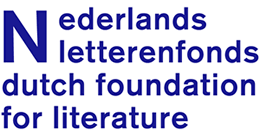Qatar: Poet sentenced to life imprisonment; fears for safety
The Writers in Prison Committee of PEN International condemns the life sentence handed down on 29 November 2012 to poet Mohammed Ibn al-Dheeb al-Ajami for allegedly ‘inciting the overthrow of the ruling regime’ and ‘criticising the ruler’ in a poem. PEN International believes that Al-Mallouhi is sentenced solely for peacefully excercising his right to freedom of expression as guaranteed by Article 19 of the International Covenant on Civil and Political Rights (ICCPR), and calls for his immediate and unconditional release.
Poet Mohammed al-Ajami (also known as Mohammed Ibn al-Dheeb) had been arrested by state security on 16 November 2011 in the capital, Doha, and charged with “inciting to overthrow the ruling system” and “insulting the Amir”. He had presented himself to state security when summoned, and been immediately arrested. He was detained incommunicado for months before he was allowed family visits and has been held in solitary confinement during his entire detention. He is detained in Doha’s Central Prison.
The prosecution is reported to have brought the charges over a 2010 poem in which Mohammed al-Ajami criticized the Amir. However, activists in the Gulf region believe that the real reason for his arrest was his 2011 work “the Jasmine Poem”, which he wrote during the wave of protests throughout the Arab world that began in December 2010. The poem criticized Gulf states and read: “we are all Tunisia in the face of the repressive elite”.
His trial, which began in November 2011 at the Criminal Court in Doha, is said to have been marred by irregularities, with the court sessions held in secret. His lawyer was not allowed to attend one of the court sessions and had to provide his defence in writing only.
He was sentenced to life in prison on 29 November by the same court. Observers were not allowed to enter the court, and Mohammed al-Ajami himself was not present at the sentencing. He is expected to appeal. A copy of the verdict obtained by Amnesty International gives no reason for the harsh sentence, but the organization understands that the charges on which he was convicted were based on the content of his poetry.
Freedom of expression is strictly controlled in Qatar, hampering freedom of the press and contributing to self-censorship among the media. Poets, bloggers, journalists and other civilians cannot speak their minds without fear of facing incommunicado detention, secret trials and other harsh repercussions.
Qatar’s accession to the Gulf Cooperation Council’s (GCC) Convention for the Suppression of Terrorism in May 2008 further threatened free speech, as its provisions risk criminalizing legitimate activities.
For further background go to:
PEN International’s previous action on the case: http://www.pen-international.org/newsitems/qatar-poet-detained-unfair-trial-and-fears-of-ill-treatment/
Amnesty International’s annual report 2012
http://www.amnesty.org/en/region/qatar/report-2012
http://www.reuters.com/article/2012/11/29/us-qatar-poet-court-idUSBRE8AS11320121129






